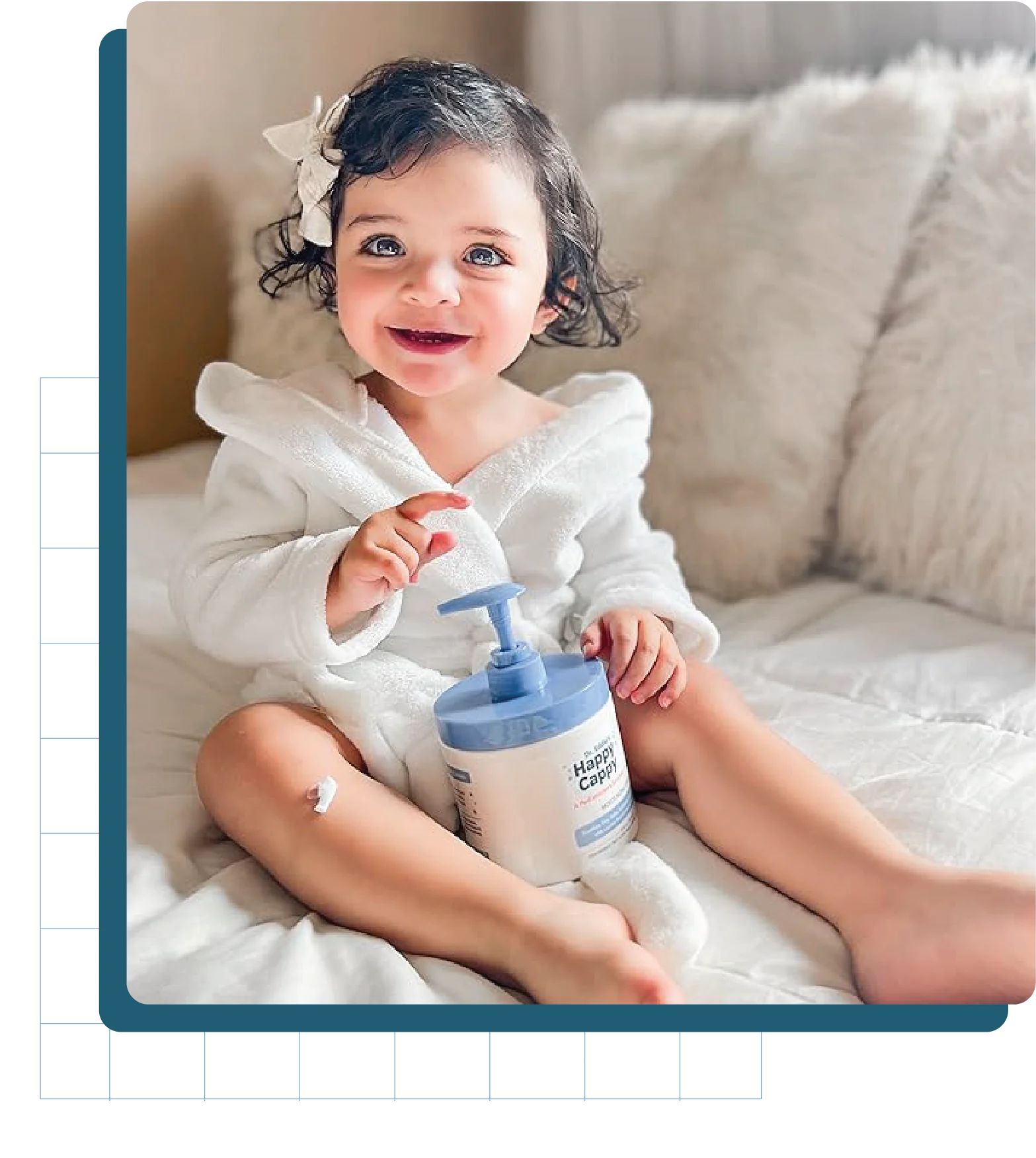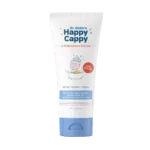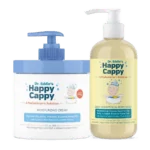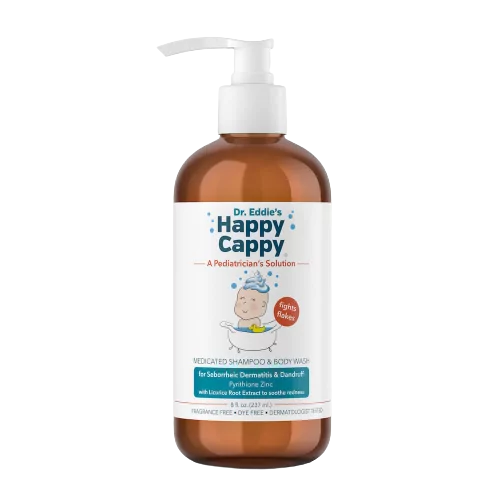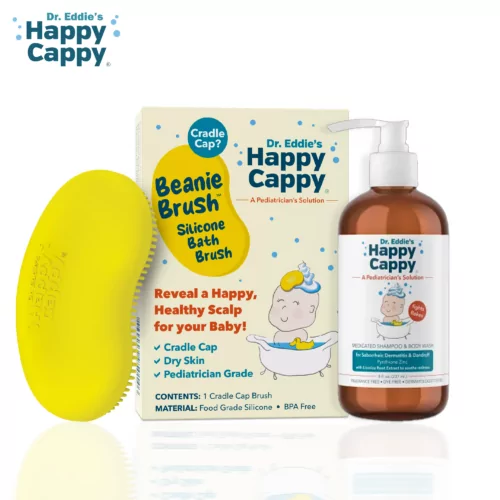No products in the cart.
It’s the age-old story. You’re preparing for an important day; you want to look your best, and — boom — a whitehead forms right on the tip of your nose. It doesn’t matter whether you were planning to roll around on your back all day, babble incoherently, or eat a bunch of food and throw up on your parents; your perfect day is ruined.
Wait…sorry. “Throw up on your parents”? Did we miss something?
Oh! You’re an infant! Thank goodness. We shuddered to think what you did for a living. While acne is most commonly associated with awkward teenagers clawing their way toward social acceptance, baby acne, or a rash also known as neonatal acne, affects children within the first few weeks of life.
It’s thought that an excess of maternal hormones causes baby acne. The condition can be aggravated by a common skin yeast.
The condition is similar to adult acne, but the treatment protocols are very different. You should never use adult acne medications on your baby. These preparations are too strong for an infant and can harm their sensitive skin.
And there’s no need to use them, as this benign condition generally doesn’t require treatment. It usually appears within the first six weeks of life, clearing on its own shortly after — usually within a few days or weeks. Occasionally the acne can persist for a few months, but this is less common.
What to Look For
Baby acne presents as red, raised bumps — pimples — similar to acne in adults. Whiteheads sometimes occur as well, and the skin around them can redden. If open comedones (blackheads) are present, or if the condition appears after two months of age, your child likely has infantile acne. This is a different condition that can last through age two. Infantile acne is rare and requires a doctor’s visit.
The face is the most common location for baby acne. It can spread to the neck, chest, and upper back, but rarely anywhere else. If you’re asking yourself whether it’s baby acne or a rash of some other kind, look for the characteristic whiteheads and their placement. Whiteheads and red bumps occurring entirely on the face before six weeks are most likely baby acne.
How to Care for Baby Acne
As we said, baby acne doesn’t require treatment, except in rare cases. If your child’s breakout is particularly bad, you should see a physician.
In general, your goal is to keep your baby comfortable until their baby acne or rash goes away on its own. It will retreat without any intervention, but the bumps and redness can be irritating. Care involves keeping the skin clean without scrubbing. Remember, don’t use adult acne products to treat baby acne. They will only make things worse.
At bathtime, clean your child’s face with warm water. Use a mild cleanser formulated for children free of damaging fragrances, dyes, and other unnecessary ingredients.
Dr. Eddie’s Happy Cappy Medicated Shampoo is the perfect choice. Not only is it mild and soothing to your child’s sensitive skin, but it can also speed recovery. Happy Cappy Medicated Shampoo was created to eliminate the flaking, scaling, redness, and irritation associated with seborrheic dermatitis. It contains pyrithione zinc, a gentle, time-tested active ingredient that has anti-fungal properties.Seborrheic dermatitis in babies is often referred to as cradle cap. This infant version of seborrheic dermatitis, is caused by the same common skin yeasts that aggravate baby acne.
Regular use of our medicated shampoo on the hair and face will keep your little one comfortable and happy while the condition fades. If it’s still present in a few months, see a doctor.
If your baby’s acne retreats and then reappears years later, that means your child is developing a far more severe condition, one that has the potential to render them and everyone around them miserable — they’re becoming a TEENAGER. Only time and a heaping dose of angst-ridden brooding can treat that inevitability.
FAQs
Latest posts by Dr. Eddie Valenzuela (see all)
- WhatToExpect Mentioned Happy Cappy Shampoo as the Best Medicated Shampoo For Cradle Cap - September 29, 2025
- Parents.com Mentioned Happy Cappy Shampoo in the List of 10 Best Shampoos for Babies and Kids of All Hair Types - September 29, 2025
- Chain Drug Review Covers Happy Cappy’s CVS Launch Nationwide - August 27, 2025
Why does my baby have acne?
Baby acne, also known as neonatal acne, is caused due to the maternal hormones that are present in the baby's body after birth. These hormones cause small pimples on the baby’s body, especially the cheeks, chin, and forehead.
How to treat neonatal acne?
It is recommended to clean the face of your baby once every day. It will be better to use warm water to wash your baby's face. Do not try to scrub or pinch the acne, and avoid using ointments, oils, or lotions with potent steroids and fragrances.
What could be the primary cause of neonatal acne?
The hormones from the mother's milk might affect the hormones of the baby, which may result in experiencing this acne.
How much time does it take to clear the neonatal acne?
Babies might take a few weeks to 3-4 months to clear this acne.
When will baby acne clear up?
Babies develop neonatal acne when they are a few weeks old. The best thing about baby acne is that it usually clears up within a few weeks or months. Before your baby turns one, their acne will be gone. But if it persists, it is best to consult a doctor for an accurate diagnosis.
Can baby acne be painful?
No, in most cases, baby acne is not painful. It may be difficult for the parents as they expect clear, delicate, smooth baby skin, but it does not hurt.
How should I wash baby acne?
The best way to clean the baby’s body with acne is to use a gentle, fragrance-free, paraben-free, and sulfate-free body wash specially formulated for babies. Happy Cappy Medicated Shampoo and Body Wash is created to manage acne in babies.
What can make the baby's acne worse?
There are a few things that you should avoid doing at all times if your baby is experiencing acne. These can worsen the condition, such as
1. Scrubbing or pinching the acne.
2. Never rub the affected area instead, pat dry.
3. Avoid using lotion and baby products with harsh chemicals.
